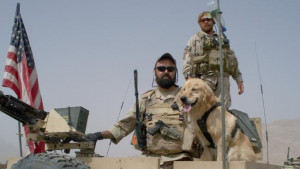
Any outright hostile steps that the White House takes against Damascus are designed to serve as an indication of the absence of any need to seek a reason or a permission from Bashar al-Assad for the US to take any steps on the Syrian soil. The international community is also being purposefully disregarded by the Trump administration as if an attack against the sovereign Syrian state doesn’t constitute a violation of international law. We are being shown that Washington will be taking into consideration nothing but its own plans and interests while deploying its military forces in the region, which doesn’t necessarily mean that it will continue pretending that it was going to fight pursue the declared fight against the terrorists of ISIS. Hence, American bases that are being built in Syria as if the soil that they occupy is up for the tacking of anybody reckless enough to claim it, thus emphasizing once again that the West couldn’t care less about Assad’s opinion on that matter.
In recent years, Russia acquired two military bases in Syria – the Khmeimim air base and the naval Tartus base. The United States has had no foothold in Syria to speak of. In this regard, the Pentagon and the Joint Chiefs of Staff (JCS) of the US Armed Forces have been particularly active in pursuing the goals that were considered unimportant before Trump came to power. It is quite obvious America’s bases that are being erected to the east of the Euphrates are built with long-term goals in mind, so they are there to stay, no matter what turn the so-called War on Terror will take.
United States Secretary of Defense, James Mattis has already presented to Donald Trump the plan of military seizure of Syrian lands last February that was to be achieved by building a network of military facilities under the pretext of having an urgent need to fight the so-called Islamic State simultaneously in Iraq and Syria. According to this official, there’s no victory to achieve against ISIS without US military installations being installed no more that 35 miles from major Syrian cities that are being occupied by radical militants.
In this regard, in addition to enhancing the engineering and logistic capabilities of the recently acquired Syrian bases of Rmeilan and Kobani, construction works were urgently launched at the former Syrian armed forces base of Al-Tabqa in the Raqqa Governorate, with American engineers working at that base around the clock. In particular, a lot of work has been invested in reconstructing and expanding the runway so that the base will be able to host tactical aviation and air transport units. It is expected that the Al-Tabqa base will soon be playing a pivotal part of US plans.
It is noteworthy that the three above mentioned bases were constructed in the de facto regions of “Syrian Kurdistan”. Thus, the Trump administration tries to show that Damascus can forget about returning the Kurdish areas under its control. A somewhat similar scenario has already been used in Iraq, where “Iraqi Kurdistan” since 2003, in fact, was transformed into a sort of an autonomous region, with Baghdad having no real authority in those lands.
It won’t be an exaggeration to state that he northeastern part of Syria is of exceptional value to Washington these days, not so much as a way of promoting Kurdish forces, but because of the need to keep an eye on Russia, Iran, and also Turkey. Ankara has repeatedly shown its intent of cooperating with Russia in various areas, thus blackmailing certain NATO countries with the possible closure of Incirlik air base.
In addition, Washington’s tries to prevent any steps that Turkey could take against Syrian Kurds east of the Euphrates, thus using the Kurdish factor to push Ankara against the wall. After all, according to the business logics Trump Professes there’s no friends for Washington to be made anywhere, since Washington’s interests are the basis of this new American policy.
So both regional and global players, including Turkey, should carefully monitor Trump’s chess game in Syria, in order not to get deceived by his “pacifying” smile, in a bid to avoid losing before the game even starts.
Martin Berger is a freelance journalist and geopolitical analyst, exclusively for the online magazine “New Eastern Outlook.”
